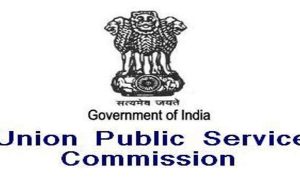Year-ender 2021: Throughout the year, the Modi government took some major decisions as it continued to face some tough challenges. As the year comes to an end, let’s look at some of these decisions.
New Delhi | Jagran News Desk: The year 2021 posed some tough challenges for Prime Minister Narendra Modi and his government — the deadly COVID-19, the border standoff with China along the Line of Actual Control (LAC) in eastern Ladakh and the farmers’ protest against the three contentious farm laws. Throughout the year, the Modi government took some major decisions as it continued to face challenges. As the year comes to an end, let’s look at some of these decisions.
Since November last year, thousands of farmers, mainly from Punjab and Haryana, were protesting on Delhi borders against the three contentious farm laws. The Modi government had tried to convince the farmers, but the protesters had refused to budge in. Unable to convince the farmers, PM Modi on November 19 announced that his government has decided to repeal the acts, bringing an end to the year-long protests.
Free COVID-19 vaccines:
India was grappled by the second COVID-19 wave. To control the situation, the vaccination drive was expanded for all people above 18 years of age. However, a controversy erupted in India after several states and union territories (UTs) stopped the vaccination drive due to an alleged shortage of vaccines.
With states and UTs questioning the government, PM Modi on June 7 announced that the Centre will provide free vaccines to all from June 21. PM Modi said that the Centre will buy 75 per cent of vaccines from manufacturers and give it to state governments for free.
7 new defence companies:
In October, PM Modi had announced that 41 Ordnance Factory Board (OFB) firms would be converted into seven government-run corporate entities. This move, PM Modi said, was aimed at making India’s defence sector ‘atmanirbhar’, adding that it will also generate employment opportunities in India, especially in rural areas.
Under the self-reliant India campaign, the country’s goal is to make India the world’s biggest military power on its own and development of modern military industry in India,” PM Modi had said, as reported by news agency PTI.
“In the last seven years, the country has worked to carry forward this resolve with the mantra of ‘Make in India’,” PM Modi added.
Union Cabinet reshuffle:
Back in July, the Modi government was facing severe criticism over its handling of the second COVID-19 wave, IT Rules 2021 and farmers’ protest. To deal with this challenge, the Modi government made several changes at the top, sacking several top leaders and ministers – including Dr Harsh Vardhan, Ravi Shankar Prasad, Ramesh Pokhriyal Nishank and Prakash Javadekar.
Then on July 7, the cabinet reshuffle took place in which several important leaders like Jyotiraditya Scindia, Mansukh Mandaviya and Sarbananda Sonowal were inducted into the Union Cabinet.
Gati Shakti Master Plan:
On Independence Day in 2021, PM Modi had announced the ambitious Rs 100 lakh crore Gati Shakti Master Plan that will make the “foundation for holistic infrastructure and give an integrated pathway to our economy”. Addressing the nation, PM Modi had said that this plan will help raise the global profile of local manufacturers.
“India needs a holistic and integrated approach in infrastructure construction along with modern infrastructure. In the near future, India is going to come out with Pradhan Mantri Gatishakti National Plan and launch it,” PM Modi had said.
I-T Rules 2021:
On February 25, the Centre framed the new I-T Rules, 2021, making it compulsory for OTT platforms and digital portals to form a grievance redressal system. The rules made it compulsory for large digital platforms – with over 5 million users – to publish a compliance report each month and take actions based on them.
However, this lead to a standoff between the Centre and some of the digital portals that claimed the new rules were “illegal and unconstitutional”. However, the Centre has been firm on the new laws, asking social media giants, OTT platforms to comply with them.
“The law of the land should be abided by everyone,” said Union Information Technology Minister Ashwini Vaishnaw.





































